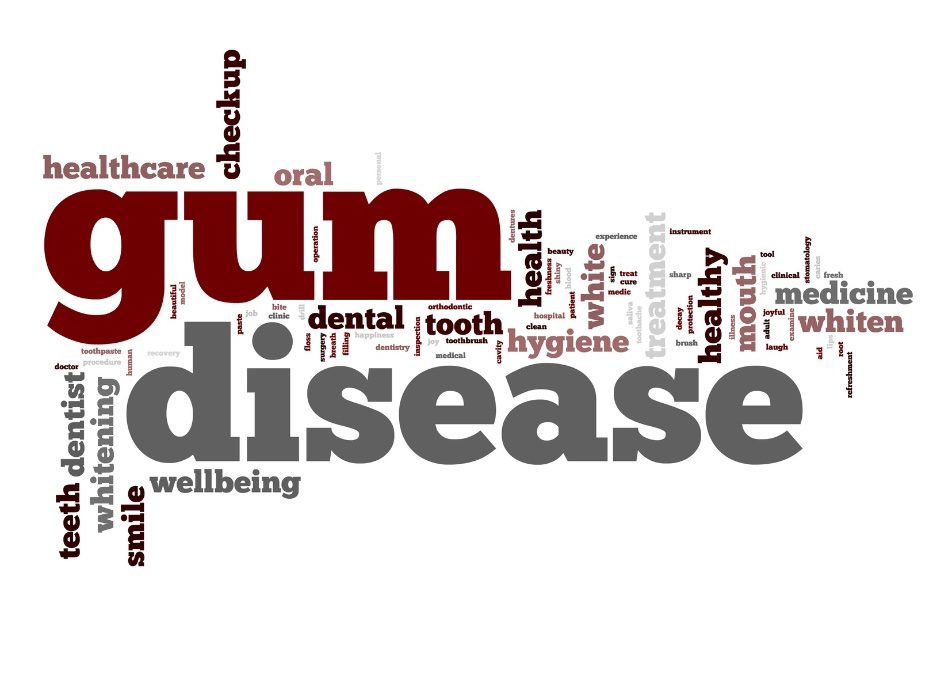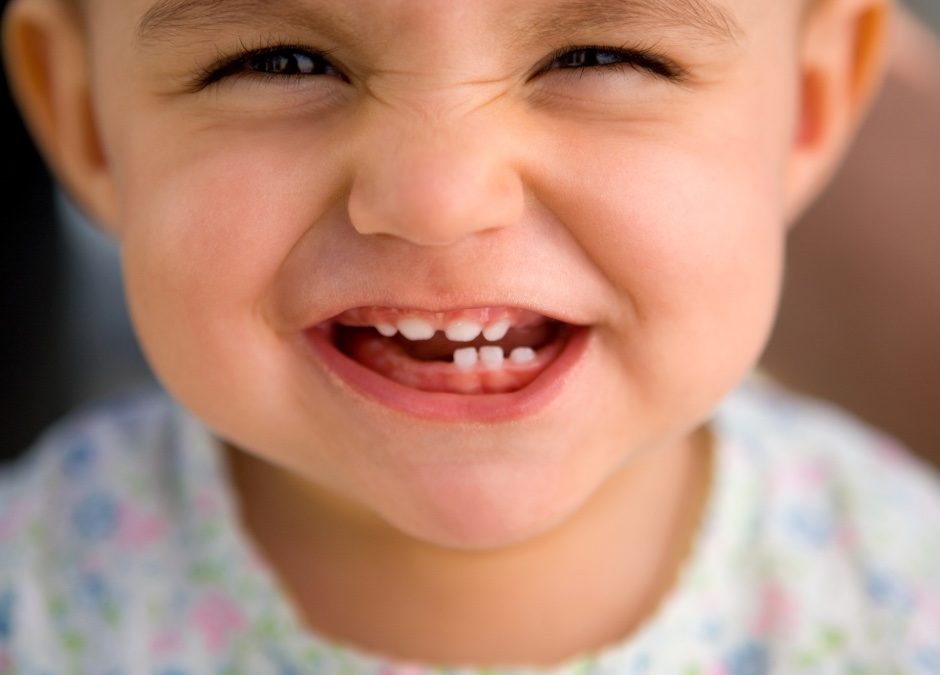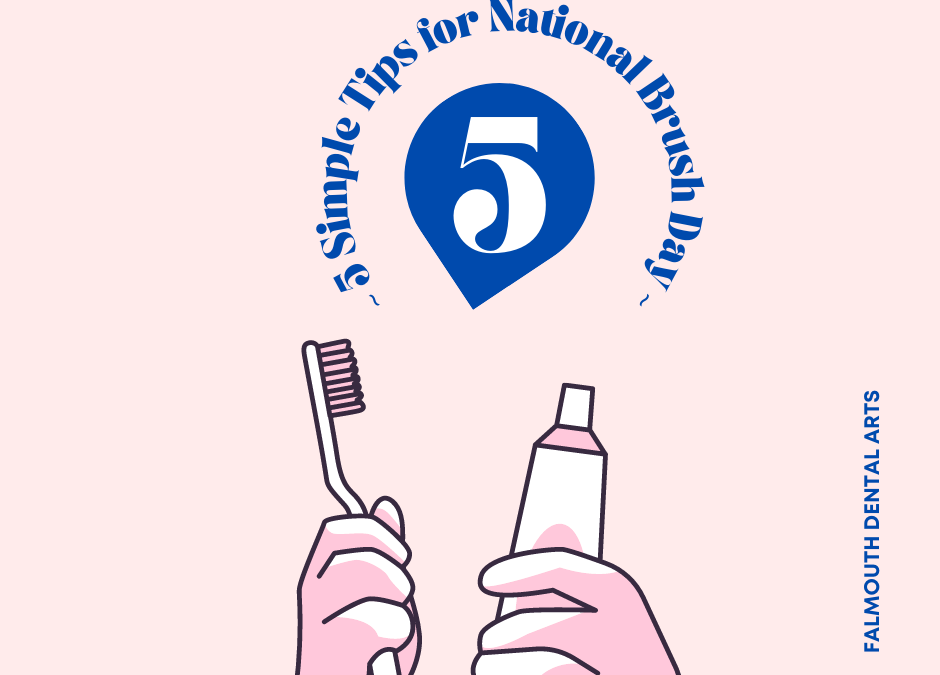
Feb 2, 2023
February is Gum Disease Awareness month and we at FDA are here to help spread the word on how important it is to keep your gums healthy. We are always looking for ways to educate our patients about the importance of oral health and best practices, and learning more about gum disease can be a great motivator for taking better care of your gums and teeth. Here are three facts about gum disease that you may not know:
1) Almost 50% of Adults in the US Have Gum Disease
A recent report by the CDC showed that almost 50% of adults over the age of 30 have some form of gum disease. The cause is bacteria in the mouth, which infects the tissue surrounding the teeth and leads to inflammation. Warning signs of gum disease include:
- Bad breath
- Red, swollen, or bleeding gums
- Sensitive teeth
- A change in the way your teeth fit together
If you notice some of these warning signs, talk to Dr. Brunacini or Dr. Karagiorgos at your next appointment. We’ll work with you to find a home care routine and treatment plan that will support your oral health…with a focus on gum health.
2) Gum Disease is Linked to an Increase Risk in Heart Disease and Stroke
We often talk about the link between your oral health and your overall health, and this is particularly true with gum disease. Research has shown a correlation between gum disease and a whole host of health issues such as heart disease and stroke. People with gum disease are 2x as likely to have heart disease. People diagnosed with an acute ischemic stroke are more likely to have gum disease. While research is ongoing, the theory is that oral bacteria can enter the bloodstream through the gums and cause blockages and inflammation elsewhere in the body. Let us know if you have either of these health issues; we are here to be part of your health care team.
3) Gum Disease is the Leading Cause of Tooth Loss in Adults
According to the National Institute of Dental and Craniofacial Research, the most common cause of tooth loss is gum disease. While this is the result of severe gum disease, also known as periodontal disease, it is still a good reminder to pay attention to your gum health.
What is the best way to take care of your gums? Practice good oral hygiene – brush and floss every day – and come see us for regular check ups. Aside from the fact that we love seeing your smiling faces at least twice per year, it is also a great way for us to monitor the health of your gums and look for any signs of disease. Is it time for your routine hygiene appointment? Give us a call at 207.781.5900, as we’re here to help!

Feb 1, 2023
At FDA, we believe that healthy habits start early! In honor of Children’s Dental Month, we’re talking about your child’s baby teeth: what to expect, and how to care for them. Here are some frequently asked questions:
1) How Important are Baby Teeth?
Although they are eventually replaced by adult teeth, baby teeth are still very important! Not just cute, they actually help with chewing solid food, learning to talk, and they serve as placeholders for when the big teeth grow in.
2) When Will My Baby Develop Baby Teeth?
Children develop at different rates, but typically a baby will sprout his or her first tooth between 6 to 12 months of age. Usually, the two bottom front teeth pop up first, with the top two teeth following right behind. New baby teeth continue to make their appearance until about age three. Around age six, you can expect your child to get their first loose tooth!
Your baby or toddler may have lots of space between their teeth and that’s ok! This is normal and allows more space for adult teeth when it is their time to move in. For more information on new teeth timing, check out the American Dental Association’s Eruption Chart.
3) When Should My Child Start Brushing and Flossing?
Even though all baby teeth will eventually fall out, tooth decay and cavities are still possible, even at a young age. To clean your baby’s first tooth, use a wet washcloth to gently wipe the tooth and the front of the tongue. Do this after feeding your baby and again before bed.
When your baby has more than one tooth, you can start brushing them with a soft-bristled, baby toothbrush or you can use your finger. Use an ADA-approved toothpaste specifically formulated for babies or just plain water works too! Flossing isn’t necessary until two or more teeth are touching together, usually between the ages of two and three.
4) When Should My Child First Visit the Dentist?
Every child is different and we want to help them build a positive relationship with oral health and dental care. We recommend scheduling your child’s first dentist appointment between their first and their third birthday. Give us a call to determine if your child is ready for their first appointment. At this appointment, Dr. Brunacini or Dr. Karagiorgos will help them to feel comfortable with the dental chair and all of the tools we use. We will examine your child’s teeth for cavities and will also give you and your child a lesson on proper brushing technique.
If you have any questions or concerns about your child’s little pearly whites, feel free to get in touch – we’re here to help! Our team of fun and friendly dental professionals looks forward to caring for your child and helping them develop life-long healthy habits! Give us a call at 207.781.5900!

Nov 1, 2022
November 1st is National Brush Day and we’re celebrating all month by raising awareness about the importance of good tooth brushing habits. At FDA, we always love an opportunity to share our oral health care recommendations and have 5 tooth brushing tips to share with you!
1) Look for the American Dental Association’s Seal of Approval
Choose a toothbrush (and toothpaste!) that displays the American Dental Association’s (ADA) Seal of Acceptance. Both manual and electric toothbrushes can thoroughly clean your teeth and gums when done correctly; we prefer electric toothbrushes for their superior plaque-fighting powers. Make sure you select a toothbrush with extra-soft or soft bristles. For help choosing a toothbrush, ask the FDA team for a recommendation!
2) Brush Twice a Day to Keep Cavities at Bay
We recommend brushing a minimum of two times per day for at least two minutes each time. The ADA has updated its list of proper tooth brushing techniques to include the following:
- Place your toothbrush at a 45-degree angle to the gums.
- Gently move your toothbrush in a circular motion (tooth-wide) to mimic the motion of an electric toothbrush.
- Brush all outer surfaces and inner surfaces as well as the chewing surfaces of your teeth.
- To clean the inside surfaces of the front teeth, tilt the brush vertically and make several up-and-down strokes.
Feel free to ask your hygienist for a demonstration of proper brushing techniques at your next appointment. Our team of compassionate dental professionals really love educating patients!
3) Wait 30 Minutes After Acidic Food & Drinks
Brushing right after eating or drinking acidic food and drinks can damage your tooth enamel. This includes citrus foods or juices, carbonated beverages, and wine. Drink some water to rinse your mouth instead, or simply wait 30 minutes until you brush.
4) Out with the Old, In with the New
Replace your toothbrushes every three to four months, or more often if the bristles are starting to show signs of wear, such as crooked or frayed bristles. We are always happy to give you a new toothbrush at your next appointment…just ask!
5) Show Your Toothbrushes Some TLC
Rinse your toothbrush thoroughly after you use it and store it in an upright position, allowing it to air dry each time. This will reduce the growth of bacteria in between brushing sessions.
Jun 16, 2020

“The entire team at Falmouth Dental Arts really cares about our patients and environment. I’m excited to be working and learning alongside Dr. Brunacini and Dr. Karagiorgos.”
Dr. Georgia Smith grew up just down the road from Falmouth Dental Arts, in Yarmouth, Maine. As the daughter of two veterinarians, Dr. Smith saw the life of medical professionals from a young age, and from a very close point of view. She always valued the aspect of helping people (or pets!), and considered pursuing the family business. As a high school student, she shadowed her childhood dentist and appreciated the work-life balance a career in dentistry provided.
Dr. Smith earned her undergraduate degree from Northeastern University in Boston, and attended Dalhousie Dental School in Halifax, Nova Scotia. After graduating from Dalhousie, Dr. Smith took her practice back to her home state, working in multiple practice locations as the sole on-site dentist. Looking for a more collaborative and team environment, Dr. Smith was referred to Falmouth Dental Arts by a colleague who knew Dr. Brunacini and Dr. Karagiorgos as wonderful teammates.
Mar 29, 2017
I was asked to write a few words about my upcoming retirement the end of June. Yes, it is going to happen and I am looking forward to it after being in dentistry either as a student, a naval officer, or a private practitioner for 49 years! I became a dentist because I wanted to help people get healthy in some way. I had a choice of going to either dental school or medical school and I guess you know which one I chose. And I am extremely grateful that I did.
Over the years I have met so many incredible people in my practice that it is hard to describe how blessed I feel. Dentistry has opened doors to many other endeavors for me, too. Some of the highlights for me have been opening my own practice in 1974 (shared with Dr. Frank Adshead at the time), getting introduced to holistic concepts in the late 70’s, helping advance those concepts throughout my career, starting Dancing With The Dentists, and many more things I won’t bore you with.
By far and away, the most important blessing is the people I have been honored to work with – many for decades! I have an incredible staff of highly trained, compassionate and humor-oriented women. Without our humor every day it would not be fun coming in to “drill, fill, and bill.” And, in particular, I’d like to give a big thanks to Francine, who had been my assistant for over 40 years. We love to take the time with people that they need. I often tell people “I do dentistry between having a conversation with them.” I think, that between all of us we have over 300 years of experience! And much of that at Falmouth Dental Arts!
Falmouth Dental Arts is a reflection of our values, which did not appear out of thin air. Our mission and values are a product of all the hard work we have put in as a team. Countless hours of staff meetings, self-improvement, mission statement building, trainings, continuing education and, last but not least, parties and fun. We are very picky about who makes it on this team. We are all protective of our culture. Since we all own it, working here is a breeze for me. I have never seen a staff like this and I don’t think there will be another one.
The greatest gift I can give to you is to have this practice continue providing you with the treatment you have come to expect and deserve. That is why I am proud that Dr. Brian Brunacini and Dr. Antonios Karagiorgos are going to continue making Falmouth Dental Arts the place to go for your care and the care of friends and relatives. I could not have chosen any better (and they are younger!). They have both demonstrated wonderful care, skill, and judgment in what they do.
I have had an incredible time at Falmouth Dental Arts and have had decades of relationships with many of my patients. I have been losing my primary care practitioners to retirement, too. It’s difficult. But my hope is that, when I hang up the drill in June, I can look back and we can say together, “Wow! That was great!”




